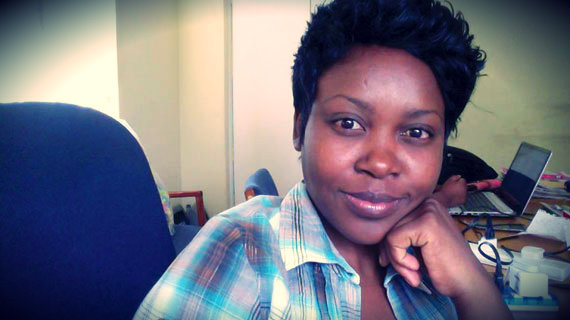
LISTENING to Qhubani Moyo — who recently resigned as policy director for the MDC — at the Bulawayo Press Club last Friday, I was reminded of the words of William James who said we have to live today by what truth we can get today and be ready tomorrow to call it falsehood.
Delta Milayo Ndou
That was essentially what Moyo did on Friday. He unpacked a lot of what he had once believed, explained why he had believed it and then unequivocally and unapologetically declared it to be mostly a falsehood.
I have known the man for some years now and if I had been asked what I would write as an epitaph for him, I would write that he is a man of convictions.
Rightly or wrongly, we all reserve the right to live as we believe and to exhaust our energies and talents in whatever causes we consider to be worthy of our exertion.
While he went to great pains to explain himself and explain his choices, I did not think it was necessary for him to subject himself to the third degree interrogatory and accusatory questions he had to field, but perhaps it was important to him to face his erstwhile comrades.
What I got out of his presentation, which I admittedly found half way through, was that Moyo is a disillusioned man and that in introspecting he has decided that his talents, emotional and intellectual resources will be better served advancing his own personal goals in academia and other exploits.
At the core of his complaint, among many others, was the baffling preference of Matabeleland voters to choose to vote for Zanu PF when ordinarily one would expect them to “know better”.
- Chamisa under fire over US$120K donation
- Mavhunga puts DeMbare into Chibuku quarterfinals
- Pension funds bet on Cabora Bassa oilfields
- Councils defy govt fire tender directive
Keep Reading
That is the bane of the activist. When you believe in a cause and invest in it, the work you do has to be its own reward because, many a time, it is a thankless task.
Moyo has ostensibly discovered just how “thankless” the people of Matabeleland can be.
Having devoted much of his formative and adult life trying to push a pro-Matabeleland developmental agenda, Moyo appears to have become fed up with trying to “save” the Matabeleland people from themselves and the responses his desertion has received have been varied.
It ranges from those who are nonchalant and have greeted the news by shrugging their shoulders and saying, “vele besingamcelanga” (we never asked him) to those who have responded in anger feeling he has betrayed the cause and pointing out “usethengisile” (he has sold out) and then to some, like me, who think that Moyo does not owe anyone any explanation.
Let the man do whatever he wants. The problem with ideological intransigence is that it makes it impossible for one to adapt to changing realities and to retain relevance, whether politically or socially.
If Moyo has proved anything, it is that we are allowed to contradict ourselves and still retain some semblance of honour.
In the words of William James, we are allowed to live today by whatever truth we can get today and we are allowed, or we should be allowed, to call it falsehood tomorrow.
Moyo’s new lense of viewing the politics of Matabeleland is refreshing insofar as it allows for introspection, for we must constantly challenge what we believe and why we believe it — always entertaining the very real possibility that we could be wrong.
I have often lamented the lack of debate and dialogue especially where politics is concerned because people tend to assume a position and dig in their heels as if their version of reality is the only valid one.
Perhaps, John Kenneth Galbraith summed it better when he noted that: “Faced with the choice between changing one’s mind and proving that there is no need to do so, almost everyone gets busy on the proof.”
I suppose when Moyo was faced with the choice between changing his mind and proving that there was no need to do so, he opted to change his mind about things he had once considered to be truth.
Should he be ashamed of this change of heart or change of mind?
I don’t think so.
But that is because I have a personal stake in the matter, given that I am one person who prefers to be unfettered by popular opinion, external expectations or the pressures of perception.
In a blog earlier this year, I made the assertion that I have a right to be wrong because perhaps in denouncing my wrongness, others can point to what is right.
Moyo has a right to be wrong, if indeed he is wrong.
I am just impressed that he does not suffer from belief perseverance, which I think has singularly crippled the thinking of most people who engage in a political discourse that is intractable.
Changing your mind is costly, especially changing your mind about a belief that has been publicly announced to others over a long period of time because you always look a little foolish, a little confused, a little turn-coatish, but it is better than living in denial.
But that’s just me. And I could be wrong. We can always agree to disagree. Delta Milayo Ndou is a journalist, writer, activist and blogger










